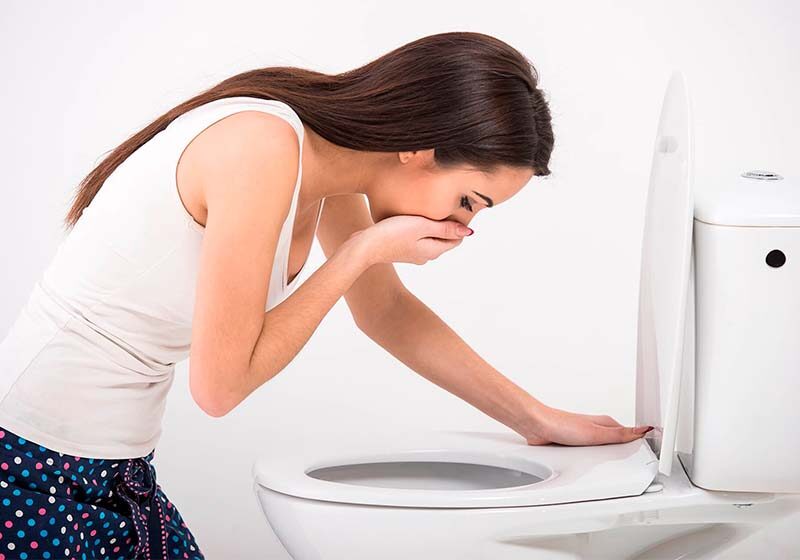
Preventing Nausea and Vomiting in Chemotherapy
Содержание
Nausea and vomiting during chemotherapy cause a lot of discomfort in the physical and emotional state of the patient. It is very important to start preventing them before chemotherapy because trying to change the situation when it has already begun is ineffective. Use simple rules of preparation.
Talking to your doctor
The specialist may start a conversation about preventing nausea and vomiting himself; if not, tell your concerns. Discuss any chronic conditions and medications needed for treatment. Find out what methods and medications are available for prevention, and whether they can be combined with basic therapy. Prepare all questions in advance.
Diet
You should follow a diet during therapy. Start it before chemotherapy. This will prepare the body for the new realities and make the prevention of nausea and vomiting more effective. Try to avoid strong smells of food, and ventilate the whole apartment frequently. Do not overload the gastrointestinal tract during chemotherapy – do not force yourself to eat a lot on the days of the procedures. It is better to eat in small portions, but several times a day. Avoid salty, spicy, fried, and fatty foods.
Water and Drinks
Try to drink plenty of water, unless you have direct contraindications to do so. Drink up to 2 liters of clear non-carbonated water on the day of chemotherapy and during the next 2-3 days. You may drink homemade compotes and lemonades, as long as they do not have harsh odors. Avoid coffee, strong tea, sweet water, alcohol, and unpasteurized juices. You should also avoid spring and well water. Never drinking grapefruit juice or eat grapefruit itself-they increase the toxicity of chemotherapy.
Dairy products
Dairy products made from unpasteurized milk and without heat treatment should be avoided. These include cottage cheese and yogurt, as well as soft cheeses. Cheese with any type of mold and vegetables that have not been heat-treated should be avoided. All pasteurized milk products are very helpful during chemotherapy, but only if their smell does not cause nausea.
Meat and fish
Avoid fast food, meat with blood, canned meat, shawarma, raw meat and fish, and cold-smoked foods. You should also avoid eating dried and salted fish. You can eat fish roe, but only from trusted producers.
Vegetables and fruits
Give up fruits and vegetables that you have not tried before. Try to eat raspberries, strawberries, peppers, and tomatoes in small amounts and only fresh. They spoil very quickly and can quickly grow mold, which is extremely dangerous during chemotherapy. Eliminate from your diet uncooked nuts and ready-made, vacuum-packed salads, as no one provides reliable data about their content. Rinse fruits and vegetables thoroughly before eating, and use dried fruit only in the form of compote.
Flour
Avoid store-bought pastries that contain cream, eggs, margarine, and/or sour cream.
Other foods
Pay attention to expiration dates and refuse new foods that you have never tried before. Treat yourself and your health responsibly. Don’t trust quacks or healers who offer “super cures for all ills”! Also, avoid products based on brewer’s yeast that has not been heat-treated.
Drug prophylaxis
Nausea and vomiting prophylaxis is effective in the absence of acute vomiting within 24 hours and other residual manifestations within 72 hours after chemotherapy.
Serotonin receptor antagonists are excellent prophylaxis. They are given intravenously, orally, and rectally, but only in a specific dosage that is prescribed by your doctor. If the dosage is exceeded, the toxicity of the other drugs may be increased.
Granisetron (a preparation of 5-HT3 receptors) is often prescribed in the form of tablets in a dosage of 2 mg 30 minutes before chemotherapy. The time of the active effect of the drug is 24 hours. If consumed on the day of highly emetogenic or cytostatic treatment, it gives 100% blockage of nausea and vomiting. In the next 2-3 days, prophylaxis of delayed reaction should be carried out with the use of 2 tablets of the drug per day.
For daily chemotherapy, prophylaxis should be given daily with prophylaxis prolonged for 2-3 days after completion of the course. Granisetron is well tolerated by the body and does not affect the pharmacokinetics of other drugs.